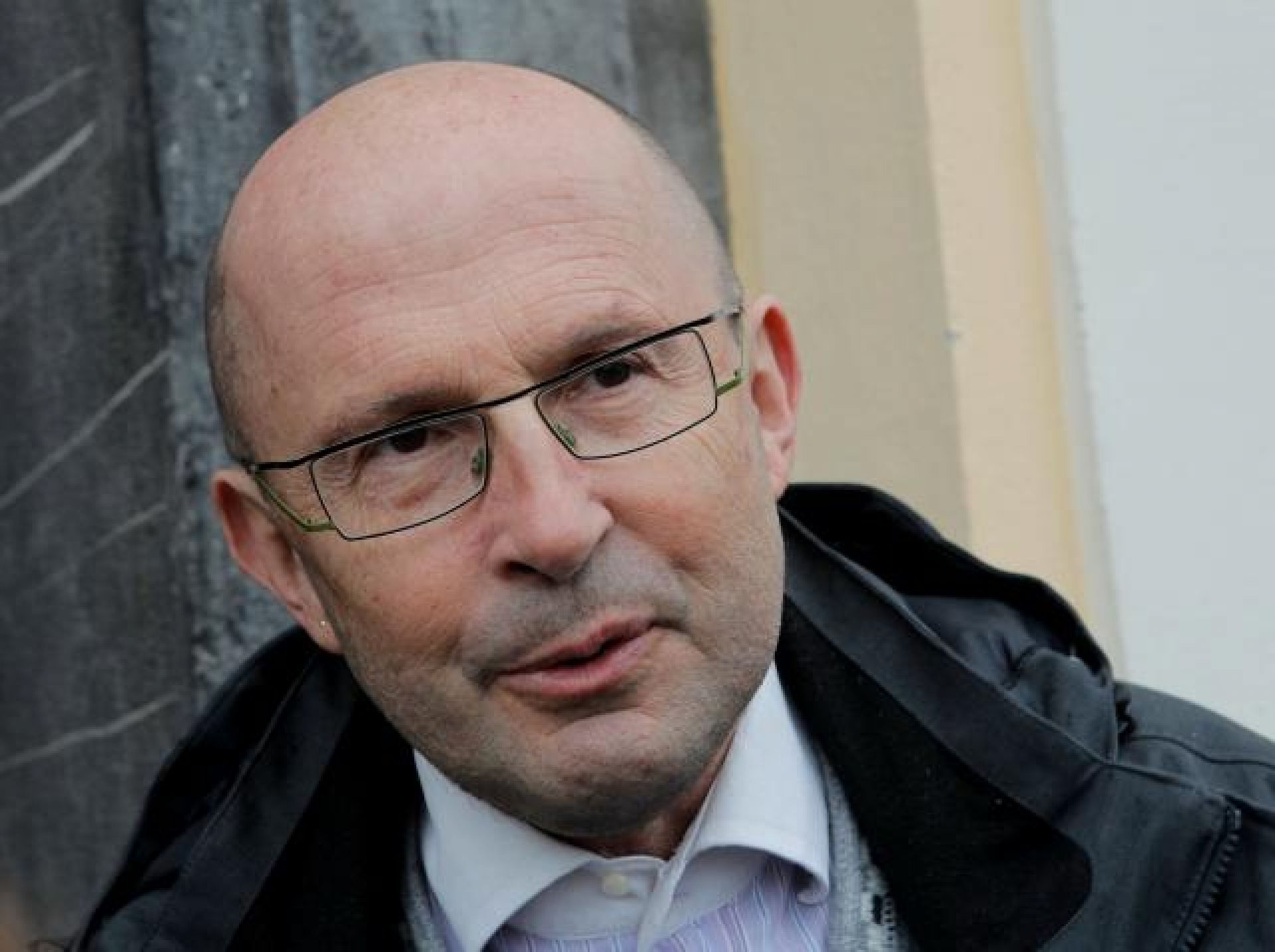By: C.R.
Excavation of victims of post-war massacres has been ongoing in Jama pod Macesnova Gorica since May, reported Radio Ognjišče, which hosted the President of the Commission of the Government of the Republic of Slovenia for issues of hidden graves, Dr Jože Dežman. He presented the course of work on the largest post-war mortuary of Home Guards killed.
So far, they have removed around two thousand cubic meters of blasted rock, which was mined on the killed victims. The surroundings were mined several times, the last time in the 1950s, which testifies to the bad conscience of the former rulers, who wanted to hide their infamous actions at all costs, said Dr Dežman. At the same time, he also questioned the sincerity of the gesture of the symbolic burial of the slain home guards in 1990, which took place near the abyss under Kren, by the communists. It has only been known for some time now that mainly Serbian and Montenegrin citizens were killed there. Despite the fact that the witnesses of the massacre were still alive at the time, no one revealed the location of Macesnova Gorica, and more than three decades had to pass before the excavation, he noted.
Apparently, about 50 people survived this massacre. The show thus presented a description of the survivors’ escape from this place of horror and death. Around thirty bodies were found in cave niches, which means that they died later. Some of them also escaped from the abyss. Thus, we know the testimonies of Milan Zajc, France Dejak, Franc Kozina, and Janez Janša Sr. Some of them were also presented in the show. It is interesting that Franc Kozina also wrote down some names of liquidators who undoubtedly knew about the location. They are all deceased today, thirty years ago they were not. Despite this, they were never prosecuted by the police or the judiciary.
Speaking to radio Ognjišče, Dr Jože Dežman said that so far, the remains of around two thousand people have been found at the aforementioned cemetery, which is supposed to be half of all victims. Dr Dežman points out that all totalitarianism is based on a lie, as pointed out by Dr Aleš Maver. Therefore, reconciliation with the truth is absolutely necessary.
There are many questions regarding the fate of the remains, as we were used to them waiting for a suitable burial place in plastic boxes and black bags for many years – in the case of Huda jama, as long as seven years. The story of the burial of the victims of Huda jama is a bad school for us, which, among other things, swept away the former president Danilo Türk due to the inappropriateness of his statements, Dežman warned. At the same time, he expressed his satisfaction that we now have the opportunity to excavate, do research and talk about what happened there, and accept the truth about it.
Another important issue is the place of burial. In the case of the victims from the mass killings under Macesnova Gorica, the question is very simple: will we agree to a propaganda construction where the dead are divided into good and bad, where some can have a grave and others not? If we do not agree to such disrespectful logic, it is our duty to find the right burial location.
As Dežman said, the Slovenian capital must show itself as the bearer of the nation’s symbolic power. For better or for worse, history must be accepted as it is. Unfortunately, Ljubljana, with Mayor Janković at the helm, appears here as a city with a distinctly disrespectful attitude towards death. So far, the government commission has repeatedly submitted a request to determine a burial place in Žale cemetery, but so far, all requests have been rejected, and the mayor has publicly promised that there will be no “traitor’s” graves in Ljubljana. But what are the killed in the Brezar abyss, asked Dr Dežman, and what about the Domobran graves on Orlov vrh, and those killed behind the cemetery wall in Šentvid? How can we have a monument to the victims of the plane crash in Ajaccio in Žale, or a monument to the victims of the Dachau trials, but for the victims from the abyss under Macesnova Gorica, the city does not have the power to accept them in Žale?
On behalf of the Government of the Republic of Slovenia, the commission addressed the question of the burial again at its last meeting on August 22nd, 2022. If Golob’s government supports Mayor Janković in his position that there is no place for traitors’ graves in Ljubljana, the question arises as to whether this is still a liberal, democratic government or is it Stalinist or Titoist? Of course, the commission cannot decide on the place of burial, but it can draw attention to it. And we will not be able to avoid this question, said Dežman. After all, even the current city government has an expiration date that goes beyond the question of the ethics of burying the victims of World War II. “Macesnova Gorica is worse than the cave of St. Barbara, it is worse than Huda jama,” concluded Dr Dežman, “that is why it is time to start treating the victims with respect. If there is democracy, this will happen.”
Source: radio Ognjišče
